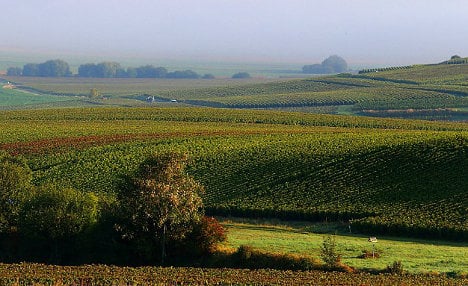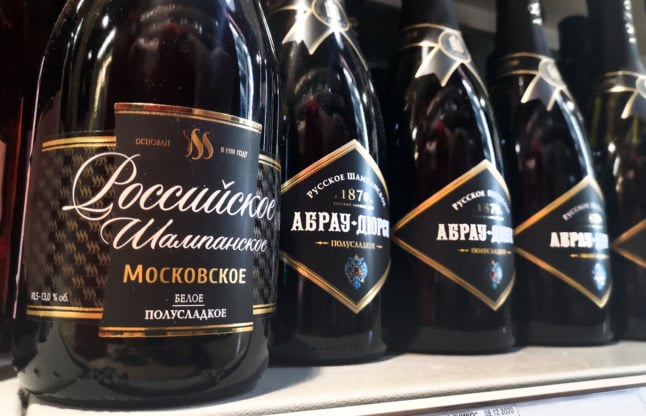“We are taking a very long-term view,” says Thibaut Le Mailloux of the Champagne Committee, a trade association of independent winegrowers and merchants.
Climate change has already had an effect on the champagne production cycle.
The past 20 years has seen the harvest brought forward by about two weeks; grapes are bigger and the alcohol content has risen by around one degree.
For the time being these factors help production, but they could spell disaster if, as experts predict, average global temperatures rise by up to five degrees Celsius between now and the end of the century.
“We really must start researching now as in 25 years it will be too late,” Le Mailloux says.
The Champagne Committee is looking to develop new, more resistant grape varieties while retaining all the properties of the “King of Wines”.
Joining forces with the National Institute for Agricultural Research (INRA) and a winegrowers institute in the southern region of Montpellier, they have embarked on a 15-year programme to create grape varieties that will beat climate change.
The challenge is to cross grape varieties that are allowed for the production of champagne — black Pinot Noir, Pinot Meunier and white Chardonnay — with varieties that are naturally resistant to certain diseases such as downy or powdery mildew.
They are also looking for genes favouring late maturation, which provides natural resistance, the Champagne Committee says.
Environmental change can not only hurt harvests and degrade quality, it can also create microclimates that encourage grapevine diseases.
On the plus side, rising temperatures can lead to lower acidity levels.
In addition, they lessen the risk of frost damage. Champagne is France's most northerly wine-producing area, with warm temperatures not guaranteed even in summer.
Hybrid supergrapes
Hybrid grapes are not new to Champagne — or for that matter most of France's winegrowing regions — which used hybridisation as well as grafting to create varieties resistant to the phylloxera aphid that wiped out vast swathes of the country's viticulture in the second half of the 19th century.
“We are crossing highly resistant super-genitors with our varieties,” says Arnaud Descotes, deputy technical and environmental director for the Champagne Committee.
“We start out with a cluster of grapes just starting to flower which we fertilise with pollen from the variety that interests us. The first
cross-breeding took place in 2015, the second in June 2016,” Descotes says.
“This is nothing to do with genetically modified crops, but hybrids obtained through technology,” he is quick to add.
The hybrid seeds — 4,000 of them — will be ready in six years to be planted in experimental plots across Champagne.
The researchers hope to complete their analyses and tastings of the resulting wine by 2030, when they will be able to present the new varieties to the appellation authorities.
Throughout the programme, “maintaining the champagne style is a central goal,” Le Mailloux says. “We are keeping up our tradition of innovation — but champagne will always be champagne.”



 Please whitelist us to continue reading.
Please whitelist us to continue reading.
Member comments